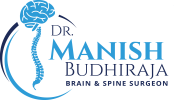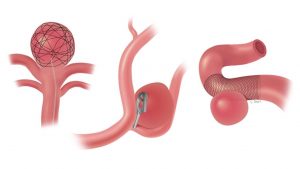Neck Pain is the common health issue that most of us face. Poor posture can strain neck muscles, whether leaning over your computer or hunching over your workbench and cause neck pain. Neck pain is also frequently caused by osteoarthritis.
Neck pain can also be a sign of a more serious problem. You can seek medical attention if your neck pain is accompanied by numbness or the loss of strength in your arms or if you have shooting pain in your shoulder or down your arm. Neck pain is usually not serious and can be resolved within a few days. However, in some cases, neck pain can indicate a serious injury or illness that necessitates medical attention.

What are the common neck pain symptoms?
Neck pain is frequently accompanied by one or more of the following symptoms and signs:
1. Sharp Agony.
This pain may be concentrated in one area and feel stabbing or stinging. This type of pain is most commonly felt in the lower neck.
2. Neck Tense
Soreness and difficulty moving the neck, particularly when turning the head side to side.
3. All Over Soreness
This pain is usually felt in a larger area or region of the neck.
4. Cervical Radiculopathy
Due to nerve root compression, the arm may experience neurological deficits such as reflexes, sensation, or strength problems. Radicular pain is sometimes associated with cervical radiculopathy.
5. Radicular Discomfort
This pain can travel down a nerve from the neck to the shoulder and arm. The intensity varies, and this nerve pain may feel burning or searing.
6. Having Difficulty Gripping Or Lifting Objects
This can occur if numbness or weakness spreads to the arm or fingers.
7. Headaches
Neck irritation can sometimes affect the muscles and nerves that connect to the brain. Tension headache, cervicogenic headache, and occipital neuralgia are a few examples.

What are some of the most typical causes of neck pain?
A variety of medical conditions and injuries can cause neck pain. A variety of conditions can cause neck pain, including:
1. Injury
Whiplash is caused by a sudden forced movement of the neck or head followed by a rebound in the opposite direction. Trauma injuries can affect the muscles, ligaments, discs, vertebral joints, and nerve roots in the spinal cord in the neck.
2. Aging
Degenerative conditions such as osteoarthritis (wear and tear on joint cartilage) and spinal stenosis (narrowing spinal spaces) can cause neck pain as you age. Stress and motion can cause spinal disc degeneration over time, resulting in a herniated disc or pinched nerve.
3. Mental Stress
Tension-related neck muscle tightening is a common cause of neck pain and stiffness.
4. Physical Strain
Using your neck muscles excessively during repetitive or strenuous activities can cause stiffness and pain.

Neck Pain Treatment
Neck pain treatment varies depending on the root cause. Its goal is to alleviate pain and improve function. The following are common treatments for this symptom:
- Nonsteroidal anti-inflammatory drugs (NSAIDs) relieve pain and inflammation, and muscle relaxants aid in healing.
- Physiotherapy (exercises to stretch and strengthen muscles and tendons in the neck).
- Inflatable devices are used to provide traction to relieve pain.
- Surgery to repair or fuse some vertebrae in the spine or to repair compressed or damaged spinal discs.
Final Thoughts
In rare situations, neck pain can also signify a medical emergency. See your doctor if your neck pain interferes with your work or daily activities. Your surgeon will consult with the best course of action according to your condition.




